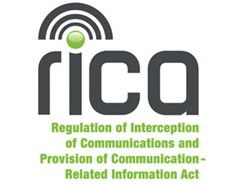
This governs online and electronic contracts in South Africa and imposes various obligations on the operators of websites offering goods or services for sale, hire or exchange to natural persons, such as providing end users with certain information about the operator (or supplier) and the goods or services.
The ECTA also regulates the use of electronic signatures and cryptography products and services and caters for the limitation of liability of service providers.
Electronic communications mean any information sent between particular parties over a phone line or internet connection. This includes phone calls, faxes, text messages, video messages, emails and internet messaging.
Some of the main features of the Electronic Transactions Act.
• the requirement to give information in writing,
• the requirement to provide a signature,
• the requirement to produce a document, and
• the requirement to record or retain information.
This applies to:
every transaction, subject to certain exemptions, for the supply of goods and services occurring within South Africa.
- In the past, people were not always protected against the suppliers of goods or services. Suppliers could have misled consumers about the quality of their goods or services or offered goods or services on unreasonable terms and conditions, leaving the consumer with little or no remedy if a problem occurred.
- The Consumer Protection Act (“CPA”) provides protection to these consumers against such suppliers.
- The CPA applies to an agreement concluded between a consumer and supplier in the ordinary course of business. A consumer is someone who buys or uses goods or receives services from a supplier. The supplier sells goods, renders services, and/or advertises his/her goods or services to the consumer.
Key areas regulated by the CPA include:
• restrictions on unwanted direct marketing.
• consumers' rights to a cooling-off period after direct marketing.
• consumers' rights to fair value.
• good quality and safety.
• strict liability for harm caused by defective products.
• an implied warranty of quality; and
• consumers' rights to fair, just and reasonable terms and conditions
Information belonging to another. The Act defines 'processing' as collecting, receiving, recording, organizing, retrieving, or the use, distribution or sharing of any such information.
In simple terms, the purpose of the PoPI Act is to ensure that all South African institutions conduct themselves in a responsible manner when collecting, processing, storing and sharing another entity's personal information by holding them accountable should they abuse or compromise your personal information in any way.
- RICA stands for the Regulation of Interception of Communications and provision of communication related information Act. It is a law passed by the South African government that requires ALL cell phone users to register their numbers.
- This regulates the interception of any direct or indirect communication through an electronic communications system in South Africa (that is, traffic on network infrastructure)
The Act has huge implications for virtually every business in South Africa. It has created a whole new regime for the regulation of companies in South Africa. This provides for the incorporation and registration of companies.
The companies act covers two main fields: corporate governance and corporate finance. Corporate governance covers the rights and duties of shareholders, directors, employees and creditors. Corporate finance addresses the ways a limited company can raise money.
- There are new liability rules for directors.
- It creates new rules for the incorporation, registration, organisation and management of companies in South Africa. It will apply if you want to register, administer or wind-up a company.
- There is a new process to register a company. (companies can now be registered electronically)
- It defines the relationships between companies and their respective shareholders (or members) and directors.
- From 1 May 2011 it has also no longer been possible to register a new close corporation or CC. CC’s will slowly become extinct and every CC has to be converted into a company ‘Pty Ltd’. The conversion of close corporations to companies is governed by the Companies Act and Companies Regulations. Every CC has to convert eventually.
The FAIS Act regulates the rendering of financial advisory and intermediary services to clients. The Act's main objectives are to protect the interests of consumers and to professionalise the financial services industry.
The FAIS Act, for the first time, gives you protection against poor advice, and will help prevent scam operators selling you a “financial” product.
Due to the importance of the payment system to the economy, appropriate regulation is essential to ensure safety, soundness and efficiency of the NPS.
The main aim of the NPS Act is to provide for the management, administration, operation, regulation and supervision of payment, clearing and settlement systems in the Republic of South Africa.
PASA is the payment system management body recognised by the South African Reserve Bank (SARB), in terms of the National Payment System Act of 1998, to organise, manage and regulate the participation of its members in the payment system.
Payment systems are a gateway to economic activity between consumers and businesses, and contribute to the well-being of South Africans. It is therefore crucial that payment systems are adequately regulated to ensure their continued safety and efficiency.
Value-added tax (VAT) is a consumption tax on goods and services that is levied at each stage of the supply chain where value is added, from initial production to the point of sale.
A value-added tax code works by using a flat tax rate to add an extra fee at each stage of a good's production. If a country's value-added tax rate is 10 percent, then the government gets to collect 10 percent of every transaction in the supply chain, from the exchange of raw materials to the final sale.
This regulates the payment of value added tax (VAT) to the South African Revenue Service (SARS), particularly in relation to the supply of "electronic services" (as defined in the VAT Act and related regulations) to South African residents.
To get a kick start on what is required to understand and apply your Strategic thinking in a digital environment, take a look at our Entrepreneurship Basics course
(Entrepreneurship Basics - An Overview).
This course is applicable to ANYONE who wants a solid, basic introduction to what Entrepreneurship is all about, and how it can be practically applied in setting up a successful and sustainable business. This course gives you entrepreneurship fundamentals, such as drafting a business plan, knowing your competition, and successful marketing.
Simply put, our WHY is to open-up the exciting world of interactive and engaging online learning by providing affordable, quality education to all.
The reason for our existence is based on our passion and commitment to the educational future of this country, and how we can help bring this country into the future of education.
With R|M|V|A, you can engage in interactive and immersive learning learn from anywhere, anytime and on any channel.




